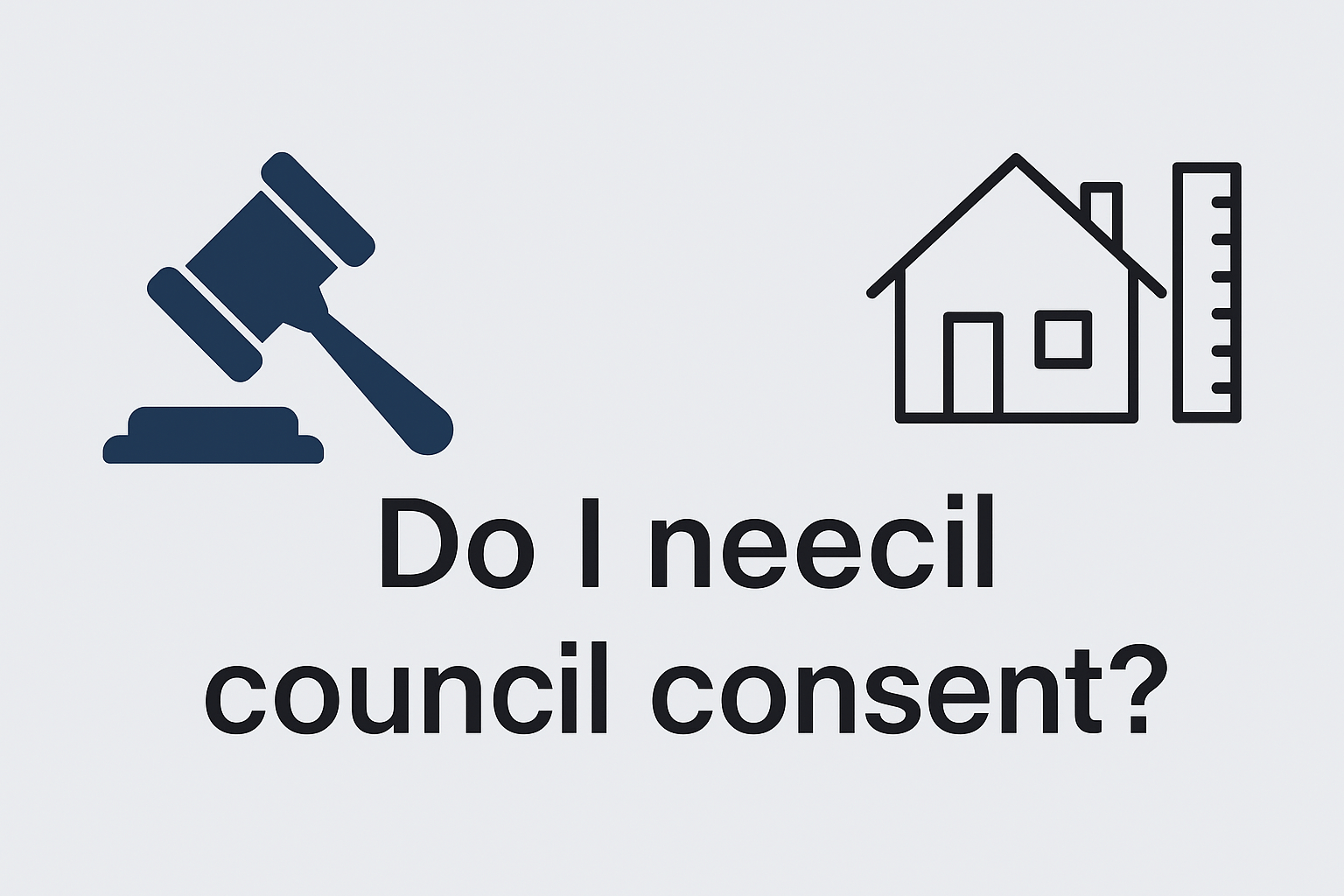Do I Need Council Consent for My Renovation in Auckland?
Not sure if you need consent? This guide breaks down what needs sign‑off and what doesn’t in 2025.
Starting a home renovation in Auckland? One of the first questions we always hear is: “Do I need council consent?”With changing regulations and building codes, it’s essential to know what requires sign‑off—and what you can safely do without.
This guide breaks it down, based on MBIE’s Schedule 1 exemptions and Auckland Council thresholds, so you can plan with clarity and avoid costly delays.
🔍 What Is a Building Consent?
A building consent is formal approval from Auckland Council to carry out specified building work that must meet the New Zealand Building Code Auckland Council+6Sonder Architects+6Superior Renovations+6Auckland Council+1Sonder Architects+1. It ensures safety, structural compliance, waterproofing, plumbing, and more.
You only get one chance. Work done without consent can trigger fines, stop-work notices—or even impact future property sales Auckland CouncilTailored Building Solutions.
✅ When You Don’t Need Consent
Under Schedule 1 exemptions from the Building Act, certain low-risk renovations are allowed without a consent, as long as all materials and workmanship comply with the Building Code buildersrenovations.co.nz+6Building Performance+6Sonder Architects+6. Examples include:
Replacing a sink, toilet, or vanity in the same location
Replacing taps or repair plumbing (done by an authorized person, like a registered plumber)
Removing a bath + installing a shower-over-bath in the same space
Refreshing cabinetry or flooring without altering plumbing or structure
However: if you move plumbing, add new sanitary fixtures (e.g. a second bathroom), or create a fully tiled wet-area shower, a building consent is required Auckland Council+1Sonder Architects+1Sonder Architects.
🛠️ When You Do Need Consent in Auckland
You’ll likely need council consent if your renovation involves:
Structural changes: removing load-bearing walls, creating new openings, or adding extensionsevents.blackbirdrsvp.com+15Tailored Building Solutions+15Superior Renovations+15Superior Renovations+1Sonder Architects+1
Relocating sanitary fixtures: moving baths, showers, toilets to a new location or adding new ones
Installing tiled wet-area showers: because of waterproofing requirements under Clause E3 of the Building CodeAuckland Council+1Sonder Architects+1
Plumbing changes: beyond replace-in-place (e.g. adding new drainage, re-routing pipes) unless done under strict exemption rules
Working in multi-unit buildings: where altering fire-rated walls or smoke separations is involved
🏛️ Why It Matters
Safety and compliance: Consent ensures drainage, waterproofing, and structural sounds are up to code
Property value: Unconsented work can reduce your home’s value or trigger buyer concerns
Avoid penalties: Auckland Council may issue stop-work orders or fines—and you may need a Certificate of Acceptance Sonder Architects+1Superior Renovations+1Auckland Council+2Auckland Council+2Auckland Council+2
🗺️ How to Check Your Consent Needs
Use Auckland Council’s “Do I need a consent?” tool online or call their helpline at 09 301 0101 Auckland Council+3Auckland Council+3Sonder Architects+3
Review MBIE’s Schedule 1 guidance for low-risk work exemptions Auckland Council+3Building Performance+3Sonder Architects+3
Consult a Licensed Building Practitioner (LBP), certified plumber, or architect early. Their advice can save time and money
📝 Quick Consent Checklist
✅ Keeping all sanitary fixtures in the same spot? (Likely no consent)
✅ Wanting to move a toilet or add a new shower? (Consent needed)
✅ Installing a tiled wet-area room or changing waterproof zones? (Consent needed)
✅ Knocking through a wall or altering structure? (Consent needed)
✅ Using a qualified, authorized person for minor plumbing work? (May qualify for exemption)
📄 The Consent Process in Brief
Prepare detailed plans or drawings (ideally with a designer or LBP)
Submit application to Auckland Council—include a deposit and all supporting documentation Superior Renovations+2Sonder Architects+2Auckland Council+2buildersrenovations.co.nz+9Auckland Council+9Superior Renovations+9
Council reviews within 20 working days—may request more info
If approved, work must begin within 12 months
Inspections occur during work to ensure compliance
Upon completion, request a Code Compliance Certificate (CCC)—required if consent was issued Superior Renovations+2Auckland Council+2Superior Renovations+2
📌 Helpful Links & Resources
MBIE Schedule 1 Exempt Work Guidance (exempt plumbing, drainage, low-risk work)
Auckland Council “Do I need consent?” tool and consent process guide
Frequently Asked Questions
Do I need a building consent to refresh a bathroom?
No—as long as you keep fixtures in the same place and don’t alter plumbing or waterproof zones. Basic replacements are often exempt.
Is owner-builder exempt from consent requirements?
Only for very low-risk tasks—owner-builders cannot undertake plumbing, electrical, or structural work without the relevant licence and compliance to the Building Code Auckland Council+1Building Performance+1Auckland Council+8Building Performance+8Sonder Architects+8Superior Renovations.
How much does a building consent cost?
In Auckland, minor renovation consents can start around $400, while larger or structural applications may exceed $3,000, plus inspection fees Sonder Architects.
What happens if I start without consent?
You may face fines, delays, or need to apply for a Certificate of Acceptance (more expensive than getting consent upfront). It can also create issues during property sale.
Navigating council consent doesn’t have to be overwhelming—especially when you know what’s required. Let us guide you so your renovation stays compliant, safe, and stress‑free.


